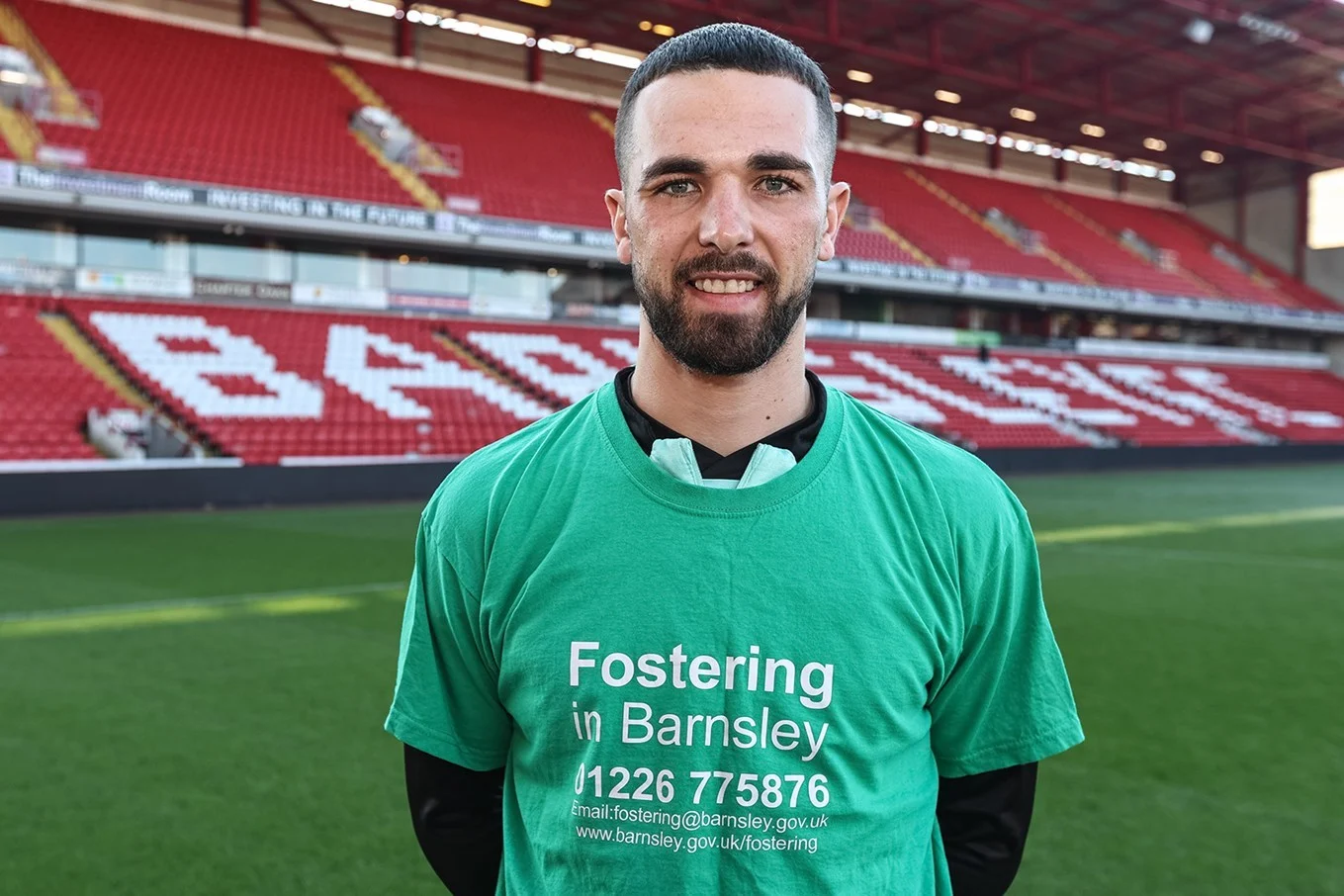
Reds to ‘go green’ when welcoming the Robins to Oakwell on Saturday.
At the Barnsley v Cheltenham Town fixture (Saturday 16 March), representatives from the Fostering in Barnsley service and foster carers themselves will be handing out information leaflets and will be available for a chat with anyone interested in being a Barnsley carer for a Barnsley child.
The Reds and its sponsor Rapid Response Telecoms have also combined efforts to generously donate 300 tickets so that foster families, independent visitor volunteers, and young people in care can enjoy seeing Barnsley in Sky Bet League One action.
Kieron Campbell, Head of Foundation at Barnsley FC Community Trust, said: “We believe every child deserves a supportive and caring team, just like a football club, through fostering. We’re delighted to be supporting the fostering team at Barnsley Council as they search for new Barnsley families to become game changers in a child’s life, by considering foster care. We look forward to welcoming the whole fostering family to the match.”
Both in Barnsley and nationally there is a shortage of carers and a particular need for people who can look after children over the age of ten, brothers and sisters who need to stay together and children with disabilities who need special care and attention. There are many children who can’t live with their birth families for lots of different reasons.
Councillor Trevor Cave, Cabinet Spokesperson for Children’s Services said: “A loving home is essential for a child’s well-being and development. Being able to continue living in the same town allows Barnsley’s children and young people in foster care to go to the same school and keep seeing their friends and family members, not to mention watch The Reds play at home!
“Much like the footballers that many young people look up to, foster carers are strong role models helping children in need achieve their dreams.”
There is no such thing as a typical foster carer – we consider people from a wide variety of backgrounds and circumstances. Anyone can foster as long as they are over 21, have a spare room and the energy and enthusiasm to look after a child.

